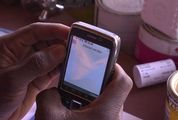THE roll-out of a new, single registration system at the South African Revenue Service (SARS) experienced glitches last week.
Tax practitioners were unable to validate public officers of the companies they represent and struggled to identify themselves at branch offices and call centres as valid practitioners.
Public officers have to be validated by the person at the company who gave them the mandate to submit the company’s tax returns. The new system is meant to result in a faster turnaround time for first-time registration applications, and simpler processes for official taxpayer representatives.
On Friday, SARS met several accredited bodies that represent tax practitioners in a bid to iron out problems experienced since Wednesday.
Tax practitioners said the new system had impeded their ability to function. This followed a letter sent out by SARS warning practitioners of changes to the registration process with effect from this month for individuals and companies.
The changes were due to apply across various tax types, with a focus on income tax, value added tax, pay as you earn, and to a limited degree customs and excise.
SARS head of service escalations and support Mark Kingon said the single registration system brought with it a new electronic manner of registration. But the challenge was that the authorised person at a company must validate that the registered tax practitioner is mandated to act on behalf of the taxpayer.
Mr Kingon said SARS was busy tightening up security over taxpayer identity. The new system had been prompted by the increase in cyber crime and the misuse of identities, he said.
"One of the things that we have highlighted is that a registered representative of a company, and that is not a tax practitioner but a public officer, has to be validated and there is a challenge in that regard," he said.
Tax practitioners also had to be authenticated through the SARS call centre or a branch office. Hitches experienced in this regard were being addressed this weekend.
Sharon Smulders, head of tax technical policy and research at the South African Institute for Tax Professionals, said tax practitioners were finding it difficult to register new businesses and new taxpayers.
"They (SARS) did react swiftly and all services will be restored to tax practitioners by Monday," she said.
Ms Smulders also said there was "chaos" when tax practitioners were unable to validate themselves on the system.
Accredited bodies had to ensure their members were also registered with SARS as tax practitioners. Ms Smulders said this was a warning to members that they had to be compliant.
"Companies must also make sure that the public officers they have appointed are the people who will ultimately take responsibility for the tax return and, if not, they need to address it as soon as possible as SARS is taking this very seriously."
Tax practitioners have to be registered with accredited institutions such as the Institute of Accounting and Commerce, the South African Institute of Chartered Secretaries and Administrators, the South African Institute of Chartered Accountants, the South African Institute of Professional Accountants and the South African Institute of Tax Professionals and SARS. Those not registered with SARS and any recognised controlling bodies will not be allowed to practise.
Ms Smulders said controlling bodies had been given two weeks’ grace by SARS to submit the information of their members and have it verified.

Picture: GALLO IMAGES/FOTO24/CORNEL VAN HEERDEN
THE roll-out of a new, single registration system at the South African Revenue Service (SARS) experienced glitches last week.
Tax practitioners were unable to validate public officers of the companies they represent and struggled to identify themselves at branch offices and call centres as valid practitioners.
Public officers have to be validated by the person at the company who gave them the mandate to submit the company’s tax returns. The new system is meant to result in a faster turnaround time for first-time registration applications, and simpler processes for official taxpayer representatives.
On Friday, SARS met several accredited bodies that represent tax practitioners in a bid to iron out problems experienced since Wednesday.
Tax practitioners said the new system had impeded their ability to function. This followed a letter sent out by SARS warning practitioners of changes to the registration process with effect from this month for individuals and companies.
The changes were due to apply across various tax types, with a focus on income tax, value added tax, pay as you earn, and to a limited degree customs and excise.
SARS head of service escalations and support Mark Kingon said the single registration system brought with it a new electronic manner of registration. But the challenge was that the authorised person at a company must validate that the registered tax practitioner is mandated to act on behalf of the taxpayer.
Mr Kingon said SARS was busy tightening up security over taxpayer identity. The new system had been prompted by the increase in cyber crime and the misuse of identities, he said.
"One of the things that we have highlighted is that a registered representative of a company, and that is not a tax practitioner but a public officer, has to be validated and there is a challenge in that regard," he said.
Tax practitioners also had to be authenticated through the SARS call centre or a branch office. Hitches experienced in this regard were being addressed this weekend.
Sharon Smulders, head of tax technical policy and research at the South African Institute for Tax Professionals, said tax practitioners were finding it difficult to register new businesses and new taxpayers.
"They (SARS) did react swiftly and all services will be restored to tax practitioners by Monday," she said.
Ms Smulders also said there was "chaos" when tax practitioners were unable to validate themselves on the system.
Accredited bodies had to ensure their members were also registered with SARS as tax practitioners. Ms Smulders said this was a warning to members that they had to be compliant.
"Companies must also make sure that the public officers they have appointed are the people who will ultimately take responsibility for the tax return and, if not, they need to address it as soon as possible as SARS is taking this very seriously."
Tax practitioners have to be registered with accredited institutions such as the Institute of Accounting and Commerce, the South African Institute of Chartered Secretaries and Administrators, the South African Institute of Chartered Accountants, the South African Institute of Professional Accountants and the South African Institute of Tax Professionals and SARS. Those not registered with SARS and any recognised controlling bodies will not be allowed to practise.
Ms Smulders said controlling bodies had been given two weeks’ grace by SARS to submit the information of their members and have it verified.



















